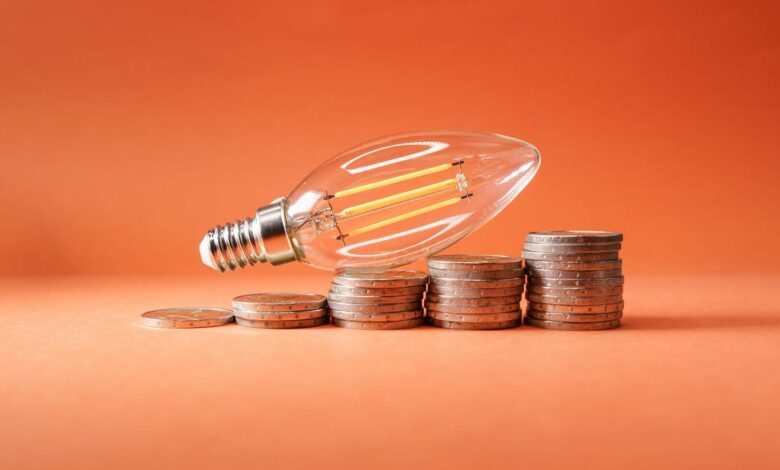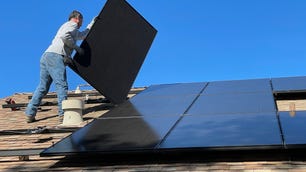7 Ways to Lower Your Electric Bill This Summer


As summer temperatures rise in the US, so do your energy bills.
Experts have even predicted that 2024 will be the hottest year on record worldwide. In many parts of the country, that means you could be running your air conditioning for months on end. But there are plenty of ways to reduce those rising summer energy costs while still staying cool and comfortable.
Here are a few ways to save money on energy costs this summer.
How your energy consumption changes in the summer
Summer heat waves are becoming increasingly more frequent and more intenseaccording to the U.S. Environmental Protection Agency. In the 1960s, Americans could expect an average of two heat waves per year. But since the 2010s, there have been an average of six heat waves per year. The duration of these heat waves has also increased, from four days to five days during the same period. The length of an average heat wave season in 50 U.S. cities has nearly tripled.
This means that more households than ever are turning on their air conditioners earlier and running them for longer periods of time. Households in parts of the country where air conditioners were once uncommon are now increasingly using them to stay cool. This spike in energy use puts strain on the grid during extreme heat waves, leaving many areas of the U.S. susceptible to blackouts.
7 tips to save on electricity costs this summer
While running the air conditioner is non-negotiable in much of the country, especially in warmer states like Texas, California, and Florida, there are plenty of strategies anyone can use to reduce their energy usage. From simple home improvements to larger energy efficiency projects, these tips can help keep your home comfortable and your energy costs down all summer long.
1. Clean and maintain your HVAC system
One of the best energy-saving measures you can take to save on summer energy costs can help you all year long. A clean, well-maintained HVAC system will operate more efficiently and use less energy than a system with a clogged filter or other problems.
“Everyone says this, but your filters are so important,” says Marco Radocaj, owner of HVAC balancean HVAC service company in Vero Beach, Florida, told CNET. “If those are dirty, it’s going to mess things up.”
Consult your HVAC system manufacturer for advice on when to clean washable filters or replace disposable filters. You’ll want to perform this maintenance at least every six months, although every three months may be ideal if you have pets. Schedule an annual visit from an HVAC professional to check your system and make sure it’s working properly.
2. Set your thermostat to the correct temperature
How you use your AC unit can affect its ability to efficiently cool your home. Instead of turning your AC on and off, Radocaj recommends leaving it running at a comfortable temperature even when you’re not home. Rather than letting your space heat up while the system is off and then turning the AC on when it gets too warm, it’s better to simply maintain a set temperature. It may not seem like it, but you’ll actually use less energy this way.
“A lot more power is consumed when the device is on than when it’s running,” Radocaj said. “The less time the device has to be on, the better. That longer runtime equates to pennies on the dollar in terms of energy consumption.”
That doesn’t mean you should never adjust your thermostat, though. The U.S. Department of Energy recommends setting your thermostat to a higher temperature in the summer. They recommend turning your thermostat up 7-10 degrees for eight hours a day. This can save you up to 10% on your annual energy bill. For example, a comfortable temperature of 74 degrees means you would set your thermostat somewhere between 81 and 84 degrees to save.
3. Have an energy audit performed
Making your home more energy efficient can help you lower your energy costs, both by reducing the overall energy use in your home and by making it easier for your air conditioner to cool your space. A home energy audit is a great first step.
A professional auditor will inspect your home for leaks or holes in areas such as windows, doors, walls, and floors. They will also look for areas where insulation can be improved and make other recommendations for a more energy-efficient home. Some utility companies offer free or reduced-cost energy audits. You can also get up to $150 off a home energy audit thanks to the Inflation Reduction Act.
It is important to perform an energy audit for embark on major home improvement projects, such as replacing windows or coating roofs, said Andrew Prchal, president of Gunner Roofing in Stamford, Connecticut.
“By having an energy efficiency audit done on the home, you can ensure that all the holes and cracks can actually be filled in,” he said.
4. Seal leaks and update draft excluders
Whether or not you opt to have a home energy audit done, you can still perform a home inspection yourself to find gaps where warm, moist air is entering your home and cool, conditioned air is escaping outside. You can purchase or rent an infrared camera or smartphone accessory that can show you where warm air is entering through the outside of your home. Look for visible gaps or areas along windows and doors where weatherstripping is worn. Once you’ve identified problem areas, seal them with new weatherstripping or caulk.
Prchal says replacing windows throughout your home can be a big project, but installing blinds as a temporary fix can go a long way toward reducing summer energy costs. If the leaks are bad enough, a whole-house wrap can plug those holes and reduce heat gain.
5. Add shade and window treatments
One of the best ways to keep your home cool is to prevent heat from entering in the first place. The easiest way to do this is to simply keep your blinds and curtains closed all day. Taking steps to shade the sunniest parts of your home, usually the west and south sides, with sun-blocking trees and shrubs can also reduce the ambient air temperature by as much as 6 degrees Fahrenheit.
But it can take years for some plants to grow large enough to provide this benefit. That’s where window treatments like insulated cellular shades, thermal curtains and blinds, awnings, and window films come in handy.
“Windows are where all the heat comes in,” Prchal said. “Window treatments like blinds and films can significantly reduce the amount of heat that comes into your home.”
These energy-efficient window treatments keep cool air in and warm air out, and block sunlight. According to experts, sunlight can account for as much as 50 percent of the heat gain in your home.
6. Install a smart thermostat
Programmable thermostats let you set a weekly schedule for your air conditioner, but smart thermostats take things a step further. These Wi-Fi-enabled devices can learn your habits and preferences to optimize your air conditioner’s performance, track your energy usage, and even help you avoid paying more for energy in areas with time-of-use rates.
“Smart thermostats are really helpful in making sure that you’re not running your air conditioner at a time when it’s significantly more expensive,” Prchal said. “They’re a great option.”
You can control most smart thermostats through an app on your phone, giving you access to energy usage data at your fingertips. Your utility may offer rebates or refunds on smart thermostats, and they’re another energy-efficient incentive with the Inflation Reduction Act.
7. Use fans wisely
Fans are an effective cooling tool that can help you delay the moment when you finally turn on your AC. Ceiling fans in particular can help keep the air from your AC moving so that it reaches as many areas of your home as possible.
Exhaust fans in bathrooms or above stoves vent to the outside, which can be useful for getting warm air out of your home when needed. But leaving them running for too long can introduce warm, moist air into the room, forcing your air conditioner to work harder. More moisture in the air means your air conditioner has to work harder to dehumidify your home. Higher humidity can also make your space feel warmer than drier air at the same temperature.
“It’s very easy and efficient to remove heat, but excess moisture simply takes more energy to remove,” Radocaj said. “If you accidentally leave a window open or an exhaust fan running, the system has to spend more of its power removing water than cooling the air.”
Running your AC in fan mode only can make the cooling function less effective for the same reason. Radocaj warns against running your air conditioner’s fan when the unit isn’t cooling.
“People often leave their fans ‘on’ all the time and think they’re circulating air,” he said. “But if you run that fan and the air conditioner isn’t cooling, it’s pulling moisture off the coil and adding it to the space.”
Other ways to save on electricity costs
Keeping your air conditioner running as efficiently as possible and reducing heat gain in your home aren’t the only ways to save on your energy bills. Quick and easy upgrades like installing LED light bulbs and using smart plugs and power strips can help cut down on vampire energy consumption. Even simple things like always running a full load of washing machines or dishwashers can make a difference.
If you’re considering larger-scale projects to improve your home’s energy efficiency, installing solar panels could save you money in the long run. Upgrading an outdated HVAC system or air conditioner to a heat pump can also result in monthly savings, since newer models are more efficient to run. Many of these expensive upgrades now come with rebates of as much as 30% off the total cost as part of the Inflation Reduction Act.





